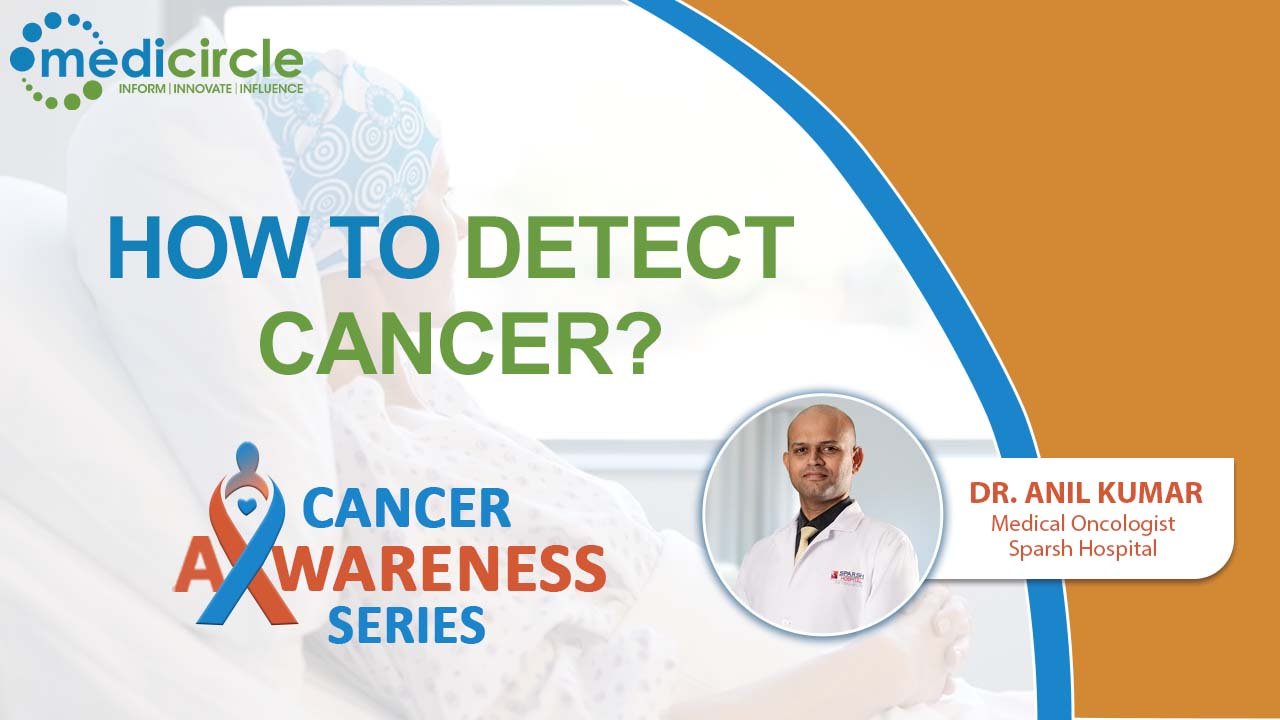India ranks third among nations in terms of the highest number of cancers. Over 13 lakh people in India suffer from cancers every year, as per the National Cancer Registry Program report.
Dr. Anil Kumar is a Medical Oncologist in Bangalore. He is currently practicing in Sparsh Hospital. He has 10 years of experience as a Medical Oncologist.
Risk Factors for Cancer
Dr. Anil Kumar states, “The main risk factors for cancer are-
- Diet - Diet is what we eat every day. It is important to take organic food free of pesticides. It is important to stop aerated drinks and junk foods and have a healthy diet. Diet plays an important role in the long run for cancer.
- Lifestyle- It is important to take care of a stressful personality, and obesity with regular exercise.
- Habits- Avoid smoking, alcohol, and tobacco
- Genetics- especially in cases of inherited genes from ancestors. Due to this, young people can develop cancer.
- Screening- As the age increases, the risk of cancer increases. A screening test is required in such cases. This will help an individual to know cancer risk is high. In India, early detection and picking of cancers at an early stage is very important.
Diet, lifestyle, and habits play an important role in cases of risk factors for cancer."
Blood test for cancer
Dr. Anil Kumar says, “There are high-end tests which are being done right now to confirm cancer. In early stages, with research, we can come to know whether blood tests can help predict and confirm a cancer diagnosis.”
Stages of cancer
Dr. Anil Kumar informs, “The stages of cancer are- For example in the case of breast cancer
Stage 1 - Localized to a particular area i.e breast
Stage 2- Advancement of cancer from the breast to armpit
Stage 3- Spread from breast armpit to Lymphnoces of the body
Stage 4- Distant metastasis where it becomes incurable spreading to bones or brain.”
Stage V cancer survival rate
Dr. Anil Kumar states, “All stage 4 cancers are not incurable or may lead to death. With treatment, stage 4 cancer lifespan can be increased. We can improve our quality of life. Based on each particular cancer, it is difficult to make a comment here. With each individual cancer, the response rate will be different, even in stage 4.”
Diagnosis of cancer
Dr. Anil Kumar tells,” ICMR is true- following cases of cancer are on high rise-
- In men- Tobacco-related cancers
- In women- Urban area- Breast cancer, Mammogram of the breast once a year after 45 years of age and up to 60 years for early detection of cancer
- In women- Rural areas- cervical cancer- a Pap smear test is a must for early detection once a year for 3 consecutive years to detect stage 1.
- Colon cancer- It is important to undergo colonoscopy once in 5 years for both men and women for any polyps or outgrowth in the colon.
There is an HPV cervical cancer vaccine available. These 3 screenings are important worldwide to detect cancer at an early stage. In India, we do not follow any strict protocols or rules to undergo the screening test. People end up coming in late and advance stage as people do not pick up at an early stage.”
Rapid Fire
Does Depression lead to cancer? Dr. Anil Kumar states, “There is no direct evidence of depression and cancer. But, if you are depressed, you are a type A personality which makes you more prone to couch potato with hampered sleep and diet. So, diet, exercise, and habits are affected if you are depressed, so in a way, you are prone to cancer in the long run.”
Does a workout help in cancer? Dr. Anil Kumar states, “Workout helps in cancer treatment as supportive therapy in a positive way. This helps in improving appetite and immunity levels. Workouts can help in reducing side effects of chemotherapy.”
Is chemotherapy painful? Dr. Anil Kumar states, “Chemotherapy is not painful. The side effects of chemotherapy are very common like gastritis, ulcers, loss of taste, and hair fall. The chemotherapy affects the normal cells also to some extent. So, side effects are part and parcel of chemotherapy. There is no need to get scared of chemotherapy. Once chemotherapy is reduced you can lead a normal life.”
Edited By: Dr.Rati Parwani
Contributed By: Dr. Anil Kumar, Medical Oncologist, Sparsh Hospital

 Cancer is known as a deadly disease. Moreover, cancer patients get scared of chemotherapy side effects as well. Dr. Anil Kumar provides insights into the early detection of cancer through screening to combat this deadly disease. He also explains the right ways to deal with chemotherapy side effects.
Cancer is known as a deadly disease. Moreover, cancer patients get scared of chemotherapy side effects as well. Dr. Anil Kumar provides insights into the early detection of cancer through screening to combat this deadly disease. He also explains the right ways to deal with chemotherapy side effects. 









.jpeg)








.png)
.png)

.png)
.png)
.png)

.png)
.png)
.png)

.png)
.png)